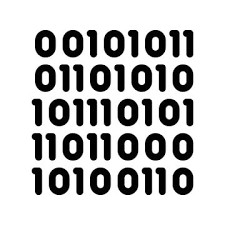Understanding PHP Binary Data Decoding
Date: 28/06/24
Understanding PHP binary decoding such as Ioncube Decode or SourceGuardian Decryption.
Decoder (decompiler) is a software written in various programming languages (C, C#, PHP, etc.) that implements some engineering methods.
The PHP programming language has been developing rapidly for decades and is available to everyone. The source code is interpreted in the Zend Engine environment, using various extensions, runtime extensions.
Ioncube or SourceGuardian decompiler in its current version must solve, implement various mechanisms for decoding and working with the binary code of the PHP virtual machine.
The Ioncube decoder must implement the operation of:
1. Basic encryption;
2. Hashed Obfuscation (variables, functions, class names);
3. Opcode data deobfuscation (some internal data obfuscation);
3. License files;
4. Dynamic keys (some keylocked functions execution);
5. External keys;
You can read older RAID research in "Security Analysis of PHP Bytecode Protection Mechanisms" by Dario Weiber, Johannes Dahse and Thorsten Holz.
The PHP kernel virtual machine uses a set of operation codes (opcodes, the result of internal compilation) that can be translated back into source code if desired.
VLD, Xcache, OPcache, and the Nikic PHP Parser are auxiliary in the study and can be the basis of any targeted loopback project. Decoding Ioncube or SourceGuardian involves working with opcodes and logic. Each PHP version has ~200 opcodes, and the bytecode structure changes with each iteration of PHP. New functionality is added, and some becomes irrelevant. "Decryption" is a misnomer for the decompilation process because it does not return a reference value. Decompilation is the correct term.
Decoder (decompiler) is a software written in various programming languages (C, C#, PHP, etc.) that implements some engineering methods.
The PHP programming language has been developing rapidly for decades and is available to everyone. The source code is interpreted in the Zend Engine environment, using various extensions, runtime extensions.
Ioncube or SourceGuardian decompiler in its current version must solve, implement various mechanisms for decoding and working with the binary code of the PHP virtual machine.
The Ioncube decoder must implement the operation of:
1. Basic encryption;
2. Hashed Obfuscation (variables, functions, class names);
3. Opcode data deobfuscation (some internal data obfuscation);
3. License files;
4. Dynamic keys (some keylocked functions execution);
5. External keys;
You can read older RAID research in "Security Analysis of PHP Bytecode Protection Mechanisms" by Dario Weiber, Johannes Dahse and Thorsten Holz.
The PHP kernel virtual machine uses a set of operation codes (opcodes, the result of internal compilation) that can be translated back into source code if desired.
VLD, Xcache, OPcache, and the Nikic PHP Parser are auxiliary in the study and can be the basis of any targeted loopback project. Decoding Ioncube or SourceGuardian involves working with opcodes and logic. Each PHP version has ~200 opcodes, and the bytecode structure changes with each iteration of PHP. New functionality is added, and some becomes irrelevant. "Decryption" is a misnomer for the decompilation process because it does not return a reference value. Decompilation is the correct term.
Written by:
AI
Contacts> Send your files and Chat 24/7:
1. Sign up |
||



